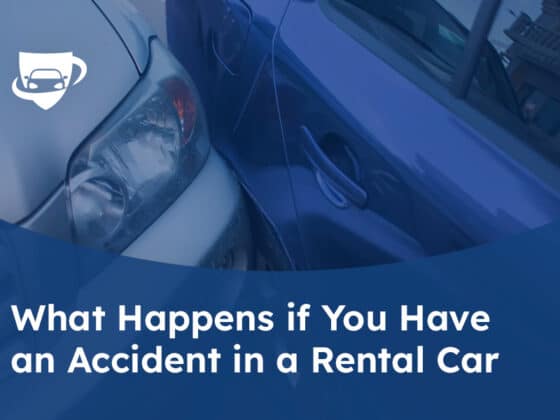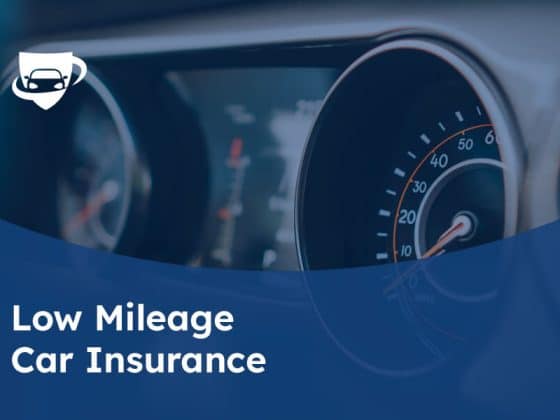As if having an accident isn’t stressful enough, there are immediate steps every driver needs to take and know what to do after a car accident. You need to make sure everyone is safe, and that help is on the way.
Additionally, you have to notify all the relevant authorities and follow the correct procedures regarding your insurance policy.
To help drivers worldwide, we’ve created a step-by-step guide for the most common types of car accidents.
Overall, this guide includes the steps to ensure safety following an accident, how to deal with a collision depending on who was at fault, what to do after an accident has caused injuries, and much more.
What to Do After a Car Accident — General Steps
Before anything else, it’s important to remember that these are general steps that require a certain degree of flexibility based on the type of accident.
Consider Your Safety
Getting into a car accident generally entails being on the open road, where other people may be driving fast. Therefore, your first concern is to check your safety. With this in mind, your first step is to turn off the car right after shifting into the park or pulling your hand break.
Doing so will decrease the chances of your car rolling away while also minimizing the potential fire hazard. Also, turn on your hazard lights for increased visibility. This is all a car accident standard procedure.
When getting out of your car to inspect the damage after the accident, put on a fluorescent vest if you have one. Also, always keep a close watch on nearby traffic activity. Are cars driving by at high speeds, or did the crash occur on a road with a low-speed limit?
Depending on whether it’s safe, your next move is to further increase your safety. You should do that by using cones and warning triangles to signal the spot of the accident. This helps ensure that other drivers can see you from a distance.
See if Anyone Needs Immediate Medical Attention After a Car Accident
In general, you can take care of some minor accidents without having to call the police, an ambulance, or the fire department. That is especially the case if the crash caused nothing but material damage.
However, suppose you have been involved in a traffic collision. In that case, it is always recommended that you check yourself for any kind of auto accident injury and ask the other people involved if they’re feeling okay.
If someone has been hurt, call an ambulance immediately—adrenaline can lower how people perceive the magnitude of their injuries. Additionally, if there’s anybody with first-aid training nearby, listen to their instructions when helping the injured.
The same concepts also apply in the case of fire hazards. If you see fuel leaking, sparks, or actual fire, make sure to call the fire department without any hesitation. Also, assist in evacuating everyone from the hazard.
Do You Have to Call the Police After an Accident?
This step depends on your jurisdiction and whether local laws demand that law enforcement be informed following an accident.
Generally, calling the police after a car accident is a smart move since police reports serve as valuable documents when filing a claim with your insurance company.
Most regions have enacted laws stating that the presence of a police officer is obligatory if an accident led to injury, death, or the collision of more than two vehicles.
Document the Scene of the Accident and Figure out What Happened
If you wonder what else to do after a car accident, definitely do this step. It ensures that you have a solid understanding of how the accident occurred and who was at fault.
When creating a record of the accident, take pictures from multiple angles and make sure all relevant details can be seen.
These pictures also serve as evidence in case you run into trouble with your insurance company or if the other driver refuses to acknowledge that they were at fault for the crash. So if you’ve had an accident, getting photographic evidence is essential.
However, don’t stop there. Try to collect all relevant data from the other people involved in the accident. This information includes, but is not limited, to:
- the names and contact information of the driver and any passengers
- a description of the vehicles involved in the accident (such as their year, make, and model)
- license plate numbers
- driver’s license numbers
- contact information for eyewitnesses
- the exact location where the accident took place
- the name and badge number of the police officer who responded to the crash
- the name of the insurance companies and policy numbers of the other vehicles.
Collaborate with State Authorities Present at the Scene of the Crash
If you wonder what else to do after a car accident — whether it’s your fault or not, don’t hesitate to do this. When talking to the police, give them an accurate representation of how the accident occurred.
Before speaking to the officer, make sure that you truly understand how the accident took place to ensure that you don’t give out conflicting information that can make matters worse.
Try not to admit fault, but under no circumstances should you lie to the authorities. Instead, use descriptive language that’s based on individual facts.
File an Insurance Claim
How long do you have to report a car accident to your insurance? Filing an insurance claim is the final step after a car accident.
In fact, collision insurance pays for the damage to your vehicle after an accident. While it isn’t mandatory by law, many car lenders require it.
This process should start as soon as possible to ensure that the claim is resolved rapidly and that you’re able to repair your car without major delays.
When speaking with the insurance agent, give them all of the data you recorded in the accident’s immediate aftermath, no matter if you were at fault or not. So, that covers what to do after a car accident regarding insurance.
Before advancing to the next sections of the article, keep in mind that post-accident steps tend to vary depending on whether the accident led to material damages only or to injury or death. The steps also vary based on who was at fault.
In essence, there’s one thing you should avoid doing at all costs: do not flee the scene of the accident! Doing so will likely lead to both criminal charges and civil liabilities.
What to Do After a Car Accident That’s Not Your Fault
In case you have had a car accident that is not your fault, the same steps outlined above will apply to you.
At the same time, the main difference is that you want to make sure you pay extra attention when it comes down to collecting the information and getting the facts of the accident straight.
Moreover, in numerous situations, what happens after a car accident is the driver at fault tries to pin the blame on the victim, and in many cases, this strategy works. In that case, you might want to hire a car accident lawyer.
Therefore, if it is not your fault, know your car accident rights, and double-check each piece of information you receive while ensuring that you take high-quality pictures of the accident scene.
In case of more severe or confusing accidents (regardless if they only led to material damages), contact the police and help the officers file a report containing your side of the story.
Following the procedures at the scene of the car crash, filing a claim with your insurance provider should be your first move.
What to Do After a Car Accident That Is Your Fault
If you are involved in a car accident that is your fault, the standard steps outlined at the beginning of the article should be followed while keeping several particularities in mind.
In brief:
- make sure that you are safe
- check for injuries
- contact the police
- collect information from the other drivers
- take pictures
- take notes
- file a report with your insurance company
This is your what-to-do-after-a-car-accident checklist, so make sure to stick to it at all times.
However, since the accident is your fault in this case, there are several other tips worth considering.
First, remain polite and don’t yell at the responding law enforcement officers — doing so will likely make matters worse.
It’s also best to avoid admitting fault or discussing the details of the accident with the other party involved. In fact, the only discussions worth having are with the police and your insurance agent.
Nonetheless, always tell the truth, and if you have to talk about the accident, use descriptive, fact-based language.
So, when thinking about what to do after a car accident regarding negotiating, avoid negotiating with the other party, and choose to follow strict legal procedures.
Negotiation might seem like a bright idea, but it’s often best to let the car insurance agent take care of this.
Last but not least, attorneys and insurance agents generally recommend that the driver at fault should be the last to leave the scene of the accident.
What to Do After a Minor Car Accident
A minor accident is usually a collision between two cars or an accident involving only one vehicle. The result of a minor accident is only material damage to either the vehicle or other objects.
As such, in the case of a minor accident, there’s no need to call an ambulance or the fire department.
However, the other tips mentioned above apply:
- check your safety
- use signaling options making yourself more visible to oncoming traffic
- collect as much information as possible about how the accident occurred
- file a claim with your insurance provider
What to Do After a Car Accident That Involved an Injury
Dealing with material damage is easy since insurance providers usually take care of all the administrative aspects associated with a car crash.
On the other hand, injury-based accidents entail more complicated procedures, alongside the involvement of health care providers and law enforcement agencies.
As such, the next part of the guide will be divided into two sections depending on the type of automobile injury.
What to Do After a Car Accident if You Are Injured
Assessing your injuries might be difficult at first because your body could be flushed with adrenaline. This means that you’ll likely be highly alert, and you might not feel the extent of your injuries yet.
The first step is to call an emergency number, offering information on where you are, what type of collision occurred, how many people have been injured, to and what possible injuries you and others have suffered
Let the dispatchers know if you believe that your back or neck has been hurt. Also, move as little as possible. There’s little to no reason to move if you’ve been injured in a car accident unless there is a fire hazard nearby.
In situations like these, it’s best to remain still. Moreover, await the intervention of medical staff, who will guarantee your quick transportation to a nearby medical facility.
Things may escalate as authorities do their best to help injured individuals while also learning more about how the accident took place.
Remain cooperative and try your best to offer clear information on how the accident occurred. Also, give clear descriptions of how you feel from a medical standpoint.
If you’re positive that you’re only dealing with a minor injury, the general steps that have been highlighted above can be taken.
What to Do After a Car Accident if Other People Are Injured
Suppose you have an accident in which someone is injured. In that case, you should:
- Call emergency services as soon as possible.
- Make sure that the accident scene is secured (by using triangles or cones).
- Collect information on how the accident occurred.
- Cooperate with law enforcement arriving at the scene.
If a fire hazard is present, make sure to evacuate the other persons involved in the accident, especially if they are immobile.
Another essential step entails giving first aid to other injured individuals and making sure they remain conscious. If you don’t have first-aid training, check if there’s a properly trained eyewitness who can help before the intervention of EMTs and police officers.
Generally, being injured in a car accident means there will be several procedural steps. You’ll face more questions, and the process of filing a claim will be slightly more complicated, depending on your coverage.
The overall process is straightforward. Yet its particularities are directly dependent on your jurisdiction and the applicable laws.
Generally, it’s important to remember that these events can be overwhelming. It’s essential to maintain your calm and be aware that professionals will soon assist you.
Bottom Line
Even though Florida and Tennessee have the highest number of car accidents per year, these accidents happen everywhere. So, it’s definitely good to prepare in case one happens to you.
We have talked about what to do after a car accident, so in case you get into one, your situation is greatly improved if the tips outlined above are applied. However, the best philosophy is to do everything you can to avoid an accident.
All in all, driving safely and obtaining additional training can be beneficial. In fact, most accidents result in material damages rather than actual injury.
However, there’s a major step to consider: getting the proper insurance. After all, being responsible for a car accident while lacking insurance often leads to massive costs.
People Also Ask
What happens with insurance after a car accident?
After a car accident, your premiums will go up regardless of whether the crash was your fault or not. In addition, most companies charge extra for up to five years, provided that it was an at-fault accident and that the damages to your car exceed $2,000.
Even though every company raises its rates after an accident, the amount varies considerably among companies. In fact, it can range from $165 to $850.
What happens if you don’t report an accident within 24 hours?
It’s best to report the accident as soon as possible. Then again, if you fail to do so, that can end in a misdemeanor or felony charge.
Insurers require policyholders to report any kind of car accident immediately. Also, while some implement the 24-hour window, others will require you to file a report as soon as possible. Failing to do so could lead to complications or penalties later on.
How can I lower my car insurance after an accident?
To lower your premiums after an accident, you can utilize accident forgiveness discounts (if available).
Likewise, some companies will simply ignore the first accident you had and maintain your premiums; others will require you to be an accident-free policyholder for three to five years before giving you discounts.
Adjusting your policy by dropping your comprehensive coverage or raising your deductible is also an option. However, before making a decision, make sure you have weighed all the pros and cons of these adjustments.
Does a no-fault accident go on your record?
States usually keep data regarding car accidents, be it your fault or someone else’s. As a matter of fact, if you weren’t at fault, there shouldn’t be a problem, even if these accidents do appear on your record.
Nevertheless, being involved in too many accidents (despite them not being your fault) can still impact your driving record, insurance coverage, and premiums.
What happens if you don’t call the police after an accident?
This depends on the rules set by your state regarding police reports. Some states don’t require the police to go to the scene if the damage is too low. On the other hand, if after thinking about what to do after a car accident, you decide to leave the scene immediately, you could be facing criminal prosecution. If said accident resulted in injuries or deaths, it’s best to call the police straight away.



